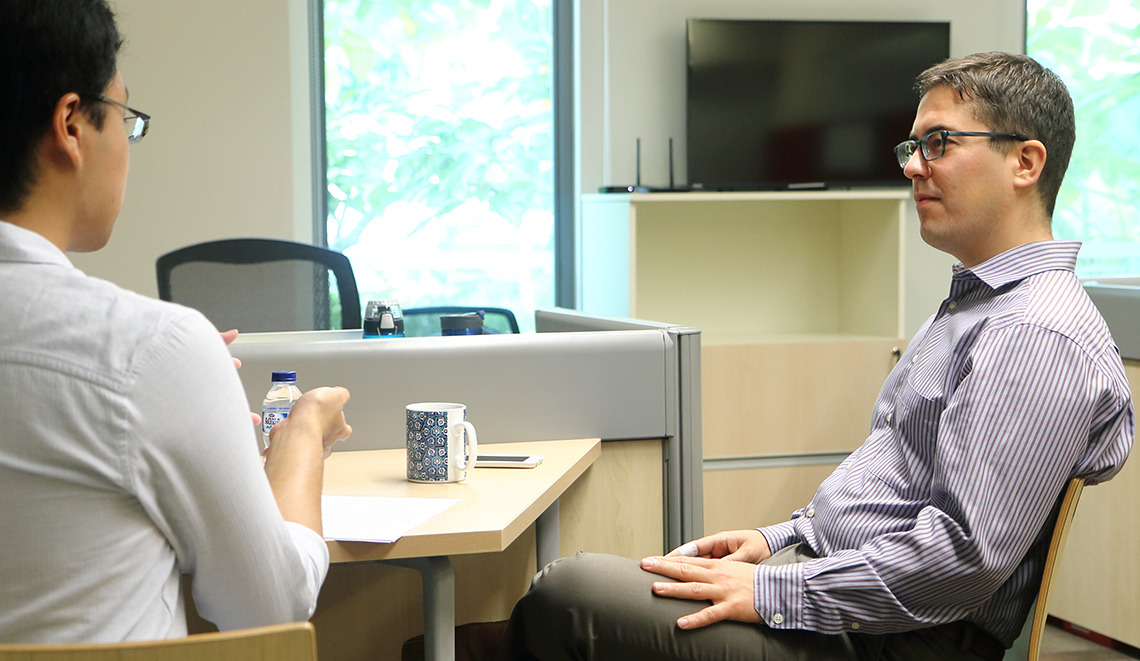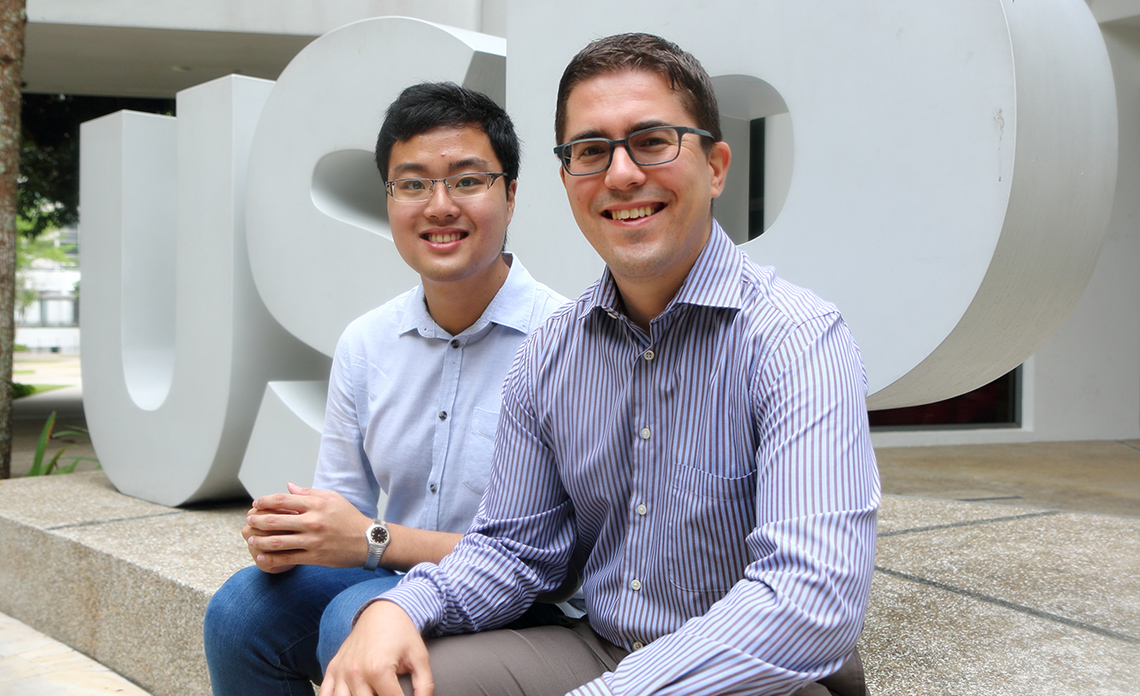Introducing Dr Bart Van Wassenhove
By Leon Lim Jin Siang (BIZ + LKYSPP + USP, Class of 2019)
Leon is a Writing Centre Assistant at USP.
Published: 16 August 2017

In my role as a Writing Centre Assistant, I was honoured and excited to be tasked with the responsibility of interviewing Dr Bart, to find out more about him and what he teaches on behalf of the USP community.
Dr Bart arrived in Singapore with his wife late last year from the U.S., and took up a position at Yale-NUS College, where he taught “Historical Immersions: The Age of Nero”. Hence, he already appeared well adjusted to the Singaporean weather and culture. In fact, Dr Bart managed to find locations where he could partake in his hobby – Hiking! He recounted his joy hiking around MacRitchie Reservoir Park, where he appreciates how Singapore, despite being a densely populated city, could still connect with nature.
Born in multicultural Belgium, coupled with his passion for Classics and languages, Dr Bart is able to speak and/or read 7 (!!) languages (English, Dutch, French, German, Italian, Latin, and Ancient Greek). By investing copious amounts of time to understand each language and their respective cultures, he was finally able to analyse ancient Classics – unadulterated! His next language? Singlish. He sees Singlish as a wonderful creole mix of many languages and cultures – an intriguing area to explore. To this end, he is seeking to speak to more locals and truly immerse himself in the culture here.
On his academic background, Dr Bart pursued for his undergraduate studies a B.A in History from Ghent University in Belgium. As you might guess from his interest in Classics, he then pursued an M.A. and Ph.D. in Classics from the University of Chicago. He has written a dissertation on the moral emotions in Seneca’s philosophical works, and has interests in Hellenistic and Roman philosophy, with a particular interest in issues of moral psychology and the interplay between philosophy, rhetoric and poetics. Pretty intense stuff, I would say.
Tying in with his research interests and beginning today, Dr Bart will teach USP Writing and Critical Thinking module, titled “Conditions of Happiness”. Happiness, or the definition of what makes a good human life, is a pertinent theme in ancient philosophy. As Dr Bart put it, happiness is something that everybody is concerned with, regardless of their background. It is also a truly multidisciplinary area, which is studied not just by philosophers, but also by psychologists, economists, and other thinkers. As a result, Dr Bart believes this topic will suit the diverse USP cohort perfectly, with minimal context required.
Seeking more specific details on the class structure, as well as readings, Dr Bart was keen to stress that the syllabus proposed is designed to be flexible and may be revised depending on the inclinations of each class, to maximise the students’ learning. That said, Dr Bart has carefully curated a list of diverse readings, many of which are written by distinguished authorities in their respective fields, such as Martha Nussbaum and Mihaly Csikszentmihalyi, the latter of whom regular TED visitors may recognise. This would in turn provide a broad-based, holistic view of the topic and (hopefully) provide students with the ammunition to conquer their essays.
The class will follow the structure of a typical Writing and Critical Thinking module, which is three papers of increasing complexity and difficulty. Regarding his teaching style and expectations, he sees each paper as a “stepping stone” in a journey, where he first ensures that students understand the “elements” which are required in an academic essay (Paper 1), before delving into more complex argumentations, objections (Paper 2). After that, for the research paper (Paper 3), sources, citation, as well as a high-level framing of issues would be taught. Classes will revolve around discussion of selected readings related to the objectives of each paper, and is expected to be dynamic, with students contributing to each other’s learning. In fact, there will be peer writing workshops, in groups of three, to review each other’s second paper, as well as a presentation of the third paper’s argument in class, where students will provide constructive comments about the respective papers, helping each other improve. It sounds to me to be a really well-thought out pedagogy and I am sure that students will benefit greatly from the methodological approach.

The writer, Leon Lim (left) and Dr Bart smiled for a photo after the pleasant chat.
Outside of work, apart from hiking, Dr Bart is also a cooking enthusiast. I was pleasantly surprised to find out that he has experimented with vegetarian versions of local dishes such as laksa, and even created vegetarian curry pastes! He also loves reading and exploring different cultures, visiting concerts and museums, as well as travelling, in his free time.
It has been a pleasant chat with Dr Bart and I am positive that he will be a really wonderful addition to the USP teaching staff and community.

